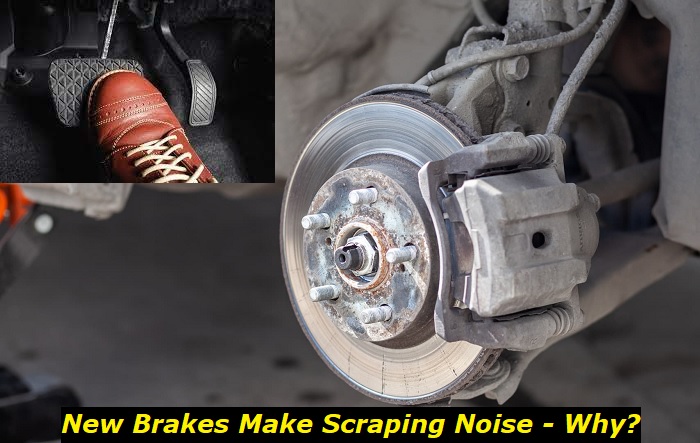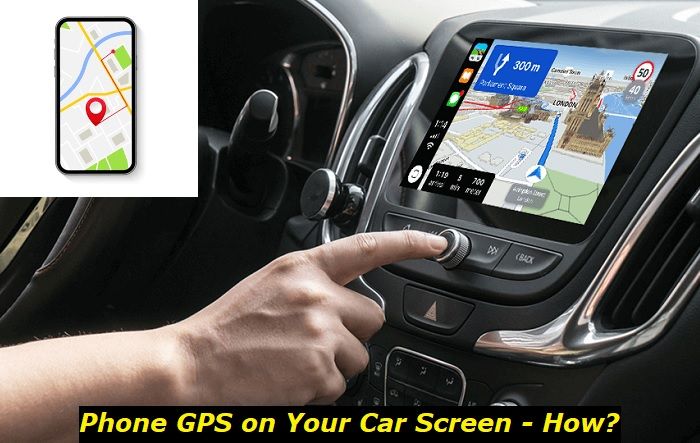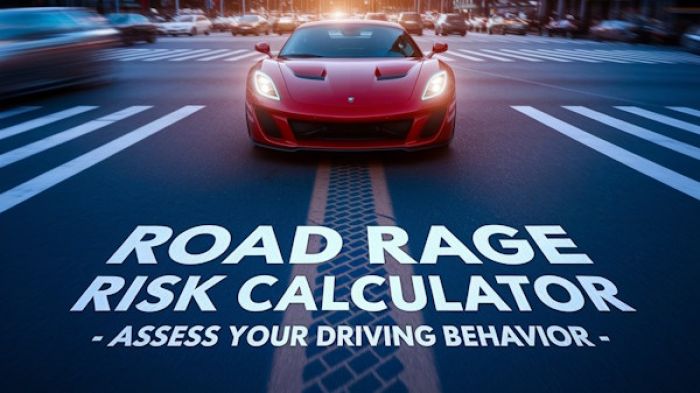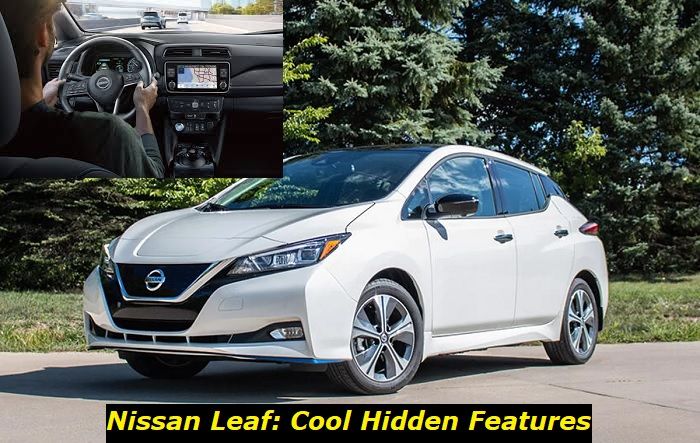You are right to be concerned if a scraping noise has been following you around since you had your new brakes put in. Every driver knows that brake performance is essential for security on the road. Hearing your car moan and groan as though you were driving over a rumble strip is unlikely to inspire confidence in your brand-new brakes.
Brake pads problems highlights
- Level of urgency:super-urgent
- DIY diagnostics:possible but complicated
- DIY repairs:impossible
- Price for repair:$250 - $450
- Common symptoms:sounds when braking, unintentional braking, warped rotor
- Commonreasons:bad pads, improper installation, old pads
- If ignored:rotor wear, bad brakes, damage to the system

Is it Safe to Drive While New Brakes Make a Scraping Sound?
The smartest thing to do when your brakes begin making a scraping, grinding, or rubbing noise, is to pull over and towing service. Alternatively, you can drive carefully to the nearest garage. However, if the scraping noise begins soon after installing new brakes, it is safe to assume that the car is safe to drive. If your brakes were installed by a licensed and insured professional, the scraping noise is nothing to worry about.
Should the scraping noise carry on for longer than the breaking-in period, you should take emergency action as advised above because your vehicle may not be safe to operate. Do not drag your feet because the longer you take to address the problem, the worse it will get. When you eventually get around to repairing the problem, it will certainly cost more than if the problem had been addressed sooner.
Causes of New Brakes Making Scraping Sound While Driving
1) Normal Breaking In
Like most pairs of new shoes, your new brakes must undergo a breaking-in period before they work just right. The scraping noise made during the breaking-in period is completely harmless. The scraping, grinding, or rubbing noise is caused by excessive friction between your rotors and brake pads. Most mechanics grind new rotors before installing them to reduce the breaking in scraping noises.
The noise should reduce and eventually disappear after your rotors and brake pads have reduced the excessive friction and settled into their optimal positioning. Riding around with an unreliable braking system is one of the worst mistakes any driver can make. Should the noise get louder or fail to disappear over time, you should consider having your braking system inspected by a licensed and insured mechanic.
2) Improper Installation
If your brakes were not installed by a licensed or experienced mechanic, there is a chance that improper installation is the cause of the scraping noise. This is doubly so if you installed your brakes yourself. It is not uncommon for eager DIYers to install brake pads incorrectly.
3) Insufficient Lubrication
Your braking system is a complex collection of parts that must be properly lubricated to function optimally. Your caliper bolts are likely to protest the insufficient lubrication loudest. Their job is to keep the brake calipers in place. They make a scraping or grinding noise to indicate their slow descent into rust.
Though caliper bolts are cheap to replace, most drivers stretch their lifespans by oiling them once a month. If you replace your brakes at home, ensure you lubricate the caliper bolts. Such mistakes are hardly made by professionals who take pains to ensure the entire braking system is working perfectly after the new installation.
4) Low-Quality Brake Pads
The cheaper your new brake pads are, the longer and louder the scraping noise is likely to be. Cheap brake pads have a lot of metal and thus make louder scraping noises than their high-quality competition. Even worse, these metallic chunks will cause heavy damage to your rotors. Excessive wear and tear will cause your rotors to need replacement much faster than usual.
Avoid falling into the trap of believing that cheap brake pads save money because they do not. In the long run, cheap brake pads will cost way more than they save. Ensure that any time you are getting new brakes put in, you use high-quality brake pads.
5) Foreign Objects in Brake Caliper
The scraping noise could also be caused by a foreign object like a tiny rock getting lodged in the brake caliper. Such objects do more than create an irritating noise, they have the potential to cause significant damage to your brake disc. Luckily, this problem could be easier than most to solve. Try driving your car back and forth slowly. If that doesn't fish out the foreign object, it is wise to have it inspected by an experienced mechanic before driving it around.
6) Damaged Wheel Bearings
This is a very unlikely, albeit possible cause of the scraping noises you keep hearing. Wheel bearing issues rarely come up because the service interval for this component ranges from 75,000 miles and 100,000 miles. Your wheel bearings allow your vehicle's tires to rotate without heating up. If some of the bearings wear out and allow debris inside, you are likely to hear a grinding noise that gets worse over time.
Other signs of damaged wheel bearings include grinding or scraping noises from your wheels, uneven tire wear, and vibrations in your steering wheel. The steering wheel vibrations are likely to change in intensity being loud and returning to silence in turns.
7) Damaged Shims
Broken shims are another suspect in the lineup of components that may be causing your car to make that disturbing scraping noise when braking. When shims get worn out, they tend to make contact with some parts of the braking system. The metal-on-metal contact is what makes the horrible scraping noise.
A rule of thumb is to replace the shims whenever you get new brakes. Unfortunately, some mechanics prefer to take shortcuts. Ensure you categorically state that you expect your shims replaced to avoid any unforeseen complications once you drive out of the garage.
Why Break in Your Brakes
There are many reasons to break in your brakes, other than getting rid of the scraping noise. Breaking in ensures your rotors and brake pads work together effectively. The process ensures that your brake pads transfer even later on the rotors when braking. Failure to break in your brakes will cause your brake pads to wear out unevenly.
Uneven wearing out of brake pads will cause them to have high and low spots that become more defined over time. The uneven brake pads will cause your car to begin shaking and vibrating whenever you brake. As you keep driving, the shaking and vibrating will get worse the more uneven the brake pads become. Failure to break in your brakes will compel you to replace your pads and rotors more often than expected.
How to Break in Your New Brakes
After getting new brakes, most vehicles need to drive at least 500 miles before the brakes work as expected. If you are not willing to listen to the scraping for that long, there is a way to speed up the break-in time. The process aims to ensure an even deposit on the rotors by allowing the brakes to cool while the vehicle and rotors are still moving. An even deposit of the transfer layer ensures your brake pads do not suffer uneven wearing out.
The most popular break in process includes:
- Drive your car up to sixty miles per hour - ensure you select the right road and time from the breaking-in process. Select a safe stretch of highway and a low traffic time to take your car out.
- Brake and decelerate to twenty miles per hour - apply moderate pressure and do not keep pressing on the brake once you reach the speed.
- Accelerate to sixty miles per hour
- Repeat the steps above ten times - do not come to a complete stop during the process. If you start smelling the brakes, do not worry, as this is to be expected.
- Cruise at sixty miles per hour for about ten minutes.
When breaking in the brakes, ensure you do not come to a complete stop, brake too hard, or press on the brakes for longer than necessary. These mistakes may cause your brakes to become glazed or melt under the extreme friction and heat you will be subjecting them to.
Conclusion
New brakes are known to make a scary scraping noise after their installation. Typically, this does not point to a mechanical defect in your car's braking system. The simplest explanation is that your mechanic did not break in the brakes in advance. While you can simply wait out the problem, being proactive and breaking them in will ensure they serve you well and last long.
About the authors
The CarAraC research team is composed of seasoned auto mechanics and automotive industry professionals, including individuals with advanced degrees and certifications in their field. Our team members boast prestigious credentials, reflecting their extensive knowledge and skills. These qualifications include: IMI: Institute of the Motor Industry, ASE-Certified Master Automobile Technicians; Coventry University, Graduate of MA in Automotive Journalism; Politecnico di Torino, Italy, MS Automotive Engineering; Ss. Cyril and Methodius University in Skopje, Mechanical University in Skopje; TOC Automotive College; DHA Suffa University, Department of Mechanical Engineering






Add comment